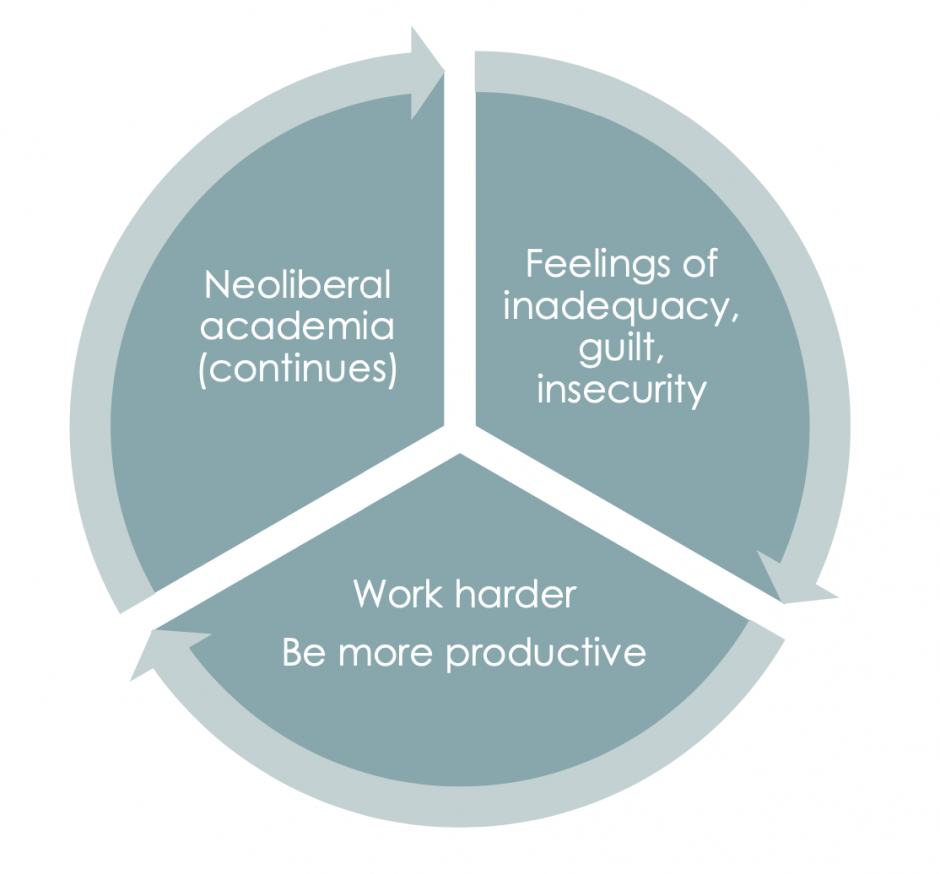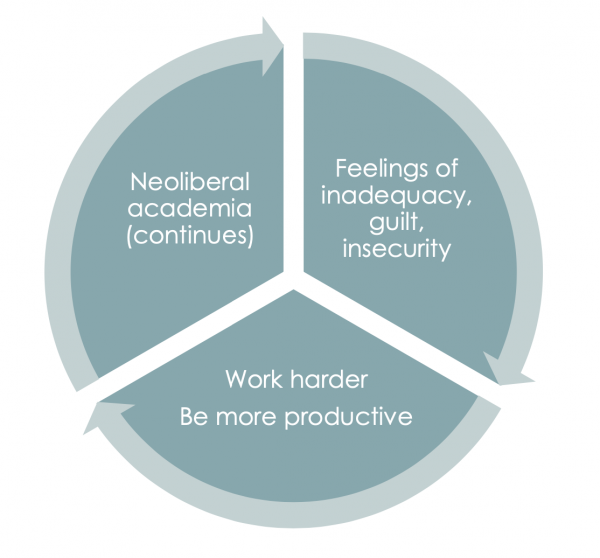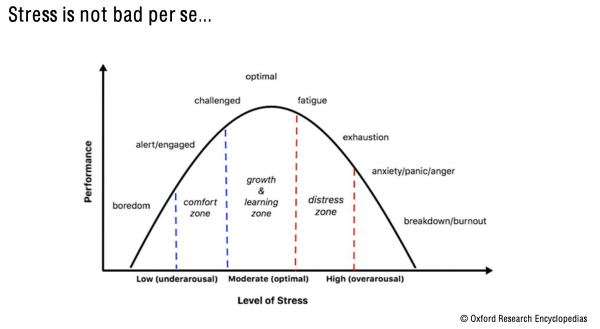“We need to normalise failure in academia”

The Academic Platform of the NCCR PlanetS organised a series of three workshops over the last two months, with a common theme to them: aiming for a healthier academic life. Today we look back at some of the key messages of each workshop.
Well-being in academia
The first workshop was held on the 8th of December, with Dr. Nilima Chowdhury from the University of St. Gallen who conducted a discussion on tools for well-being, a topic at the heart of her psychology research. We are all aware that academia is not a perfect place. In particular, some things seem to have degraded over the year with a neoliberal model of universities, encouraging for example entrepreneurialism, competition or an audit culture. This, in turn might lead academics to feel inadequate and push them to work harder to be more productive, encouraging the neoliberal model further in a vicious circle. Some ways to mitigate this must come from our own individual habits, and we must re-evaluate our “self-leadership” in order to be able to authorise ourselves to slow down. Most of the problem though, must be fixed by changing the work culture as a whole. Success is put on a pedestal in academia: successful grants, successful research, successful publishing, etc. while insecurities, inadequacy feelings, bugs, and all types of negative aspects are not only disregarded, but also kept silent. As depicted in Dr. Chowdhury presentation: “Despite their profound impact upon our lives, these things are rarely spoken of within the Academy, and, if they are, they tend to be treated as individual, personal experiences rather than structural features of the contemporary University.” It is a reason why all participants agreed that “We need to normalise failure in academia”. You can start acting on that very easily: next time you have a group meeting or give a presentation, include a slide, just a single slide, on some aspect of your project that did not work as expected, may it be a bug in your code or a disappointing scientific result for example.
Inclusion and welcoming behaviour
Another way to improve well-being for you colleagues, is to ensure Inclusion and welcoming behaviour in everyday social interactions. This was the second workshop title, held by Daniela Hansen from ETH Diversity, on the 18th of January. Daniela Hansen is also the project manager of the “Fix the Leaky Pipeline” programme.
In this workshop, the participants exercised their awareness on micro-aggressions and non-inclusive behaviour by analysing the situation presented in the video “What kind of Asian are you?”.
They learned how important it is that we reflect on our behaviours, that we are aware of what we do, say and how we act. Micro-aggressions, often non intentional, are concerning everybody. To act accordingly to suppress them, it is important to know about your own stereotypes and be open about discussing them. How to react when being confronted, either as a recipient or bystander, to micro-aggressions, is very situation-dependent. You might for example decide to challenge the perpetrator, interrupting the discussion and asking them to repeat so they realise what they said. Overall, addressing micro-aggressions at work and show support to the receivers help prevent negative psychological effect on them, such as feelings of exclusion, discouragement or frustration in their professional life.
Stress management
The last workshop, presented on the 25th of January by Dr. Ariane Orosz from ETH Zurich, related to stress and its management. As a neurobiologist, Dr. Orosz explained to the participants the biological processes occurring in their body when reacting to a stress factor. She also described how target sensorial stimulation can lead to specific emotional responses: emotional conditioning, and how this can be used to help fight phobias. As the body provides physiological response to stress, too much stress can lead to overloads that are not psychological but biological. After an introspection with the participants to get them to better know their stress factors and increase their body awareness to better evaluate their stress level, Dr. Orosz also proposed exercises enabling to lower your stress level and reduce the level of the associated hormones. An example easy to do while you read the rest of this article, focusing on your breathing, do the following cycle: inhaling for 4 seconds, followed by a 6 second exhales. Many activities can also help there, from listening to music and singing, to yoga, dancing, socialising or sports, as long they are not too high intensity – anything that releases oxytocin in your body to counter cortisol! Not everyone reacts the same to the same activities, so in the end, the most important is for you to know your “islands of deactivation” to activate your anti-stress systems regularly. In stress management, science shows that regular small relaxing moments are more efficient and as much needed as long holidays…
Categories: Internal Newsletter


